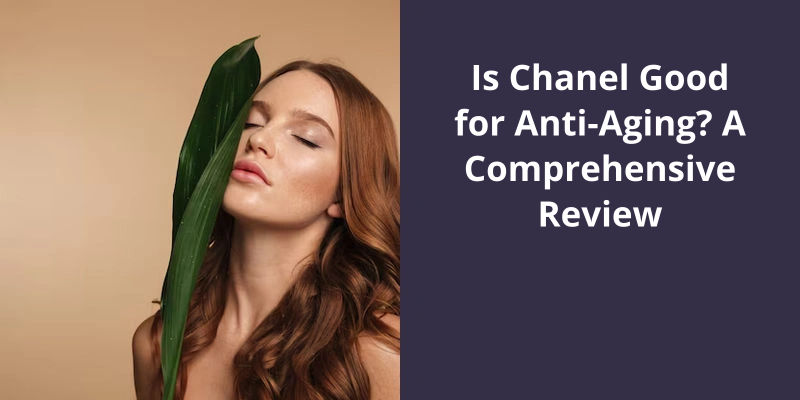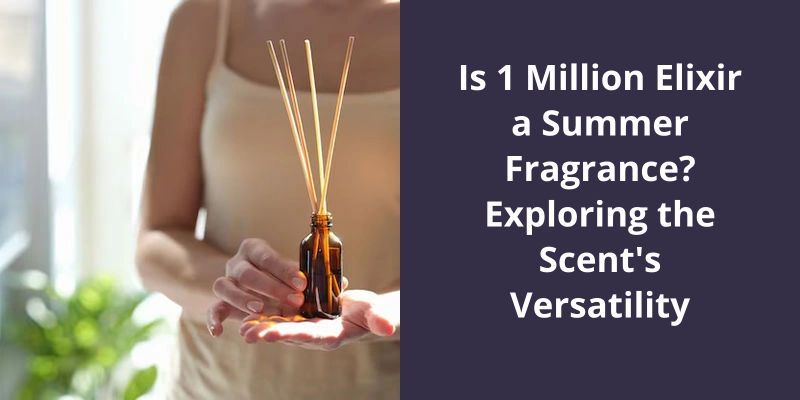As we age, our skin undergoes a variety of changes, such as the loss of elasticity and the formation of wrinkles. While these changes are natural, many people seek out products and treatments to help slow down the aging process and maintain a youthful appearance. One such product line that’s gained popularity in recent years is Chanel's anti-aging collection. With a focus on science and innovation, Chanel promises to deliver effective solutions that combat the signs of aging. But just how effective are these products, and what sets them apart from other anti-aging options on the market? In this article, we will explore the ins and outs of Chanel's anti-aging line, examining the ingredients, the research, and the results to determine if it truly lives up to it’s promise of youthful, glowing skin.

Do Anti-Aging Skin Creams Really Work?
There’s no magic solution to keep our skin looking youthful forever. However, it’s possible to delay the signs of aging and improve the skins condition by using the right products and adopting a healthy lifestyle. Anti-aging skin care products contain ingredients that claim to have a positive impact on the skins texture, tone, and firmness.
Retinol, a derivative of Vitamin A, is one of the most effective ingredients found in anti-aging creams. It helps resurface the skin and encourages new collagen production, which in turn reduces the appearance of fine lines and wrinkles. Retinol can also improve the texture of the skin by reducing pore size, and it can even out skin tone by reducing hyperpigmentation caused by sun damage.
Hyaluronic acid, on the other hand, is a humectant that helps the skin retain moisture. As we age, our skin loses it’s ability to retain moisture, which results in dryness, fine lines, and wrinkles. Hyaluronic acid is capable of holding up to 1000 times it’s weight in water, which makes it an excellent ingredient to hydrate and plump the skin, giving it a more youthful appearance.
Vitamin C is a potent antioxidant that protects the skin against free radicals and helps brighten the skin. Niacinamide is an effective ingredient that strengthens the skins barrier function and helps reduce hyperpigmentation. Peptides are small proteins that help stimulate collagen production and improve skins elasticity.
However, there are many other products on the market that claim to reverse the signs of aging on your face, making it difficult to decipher which ones are actually useful and worth the investment. In this article, we will explore some of the most popular anti-aging products and ingredients, and provide recommendations from dermatologists on which ones are truly effective.
What Is the Best Thing to Put on Your Face for Anti-Aging?
Sunscreen with SPF 30 or higher can help prevent sun damage, which is a major contributor to premature aging. UV rays from the sun can cause fine lines, wrinkles, age spots, and sagging skin. By using sunscreen regularly, you can protect your skin from these harmful effects. Dermatologists recommend using a broad-spectrum sunscreen that protects against both UVA and UVB rays, and applying it every two hours when outdoors.
Moisturizer is another crucial anti-aging product. As we age, our skin produces less natural oils, which can lead to dryness and a loss of elasticity. By using a moisturizer, you can help keep your skin hydrated and plump, reducing the appearance of fine lines and wrinkles. Look for a moisturizer that contains ingredients like hyaluronic acid, glycerin, and ceramides, which can help to boost hydration levels and improve skin texture.
Retinoids, which are derivatives of vitamin A, can boost collagen production and reduce the appearance of wrinkles. Antioxidants like vitamin C and E can help protect against free radicals, which can damage skin cells and lead to premature aging. Peptides, which are chains of amino acids, can also help stimulate collagen production and improve skin elasticity.
It’s important to remember that everyone’s skin is different, and what works for one person may not work for another. Consulting with a dermatologist can help you determine the best anti-aging products for your specific skin type and concerns. They can recommend prescription-strength products or professional treatments, such as chemical peels or laser therapy, to help improve the appearance of your skin.
Ultimately, the key to anti-aging is a combination of lifestyle habits and skincare products. Eating a healthy, balanced diet, getting regular exercise, and avoiding smoking can all help keep your skin looking youthful. And by using sunscreen and moisturizer every day, and incorporating other anti-aging products as needed, you can help reduce the visible signs of aging and keep your skin looking it’s best.
The Effects of Pollution on Skin Aging and How to Protect Against It
Pollution is known to cause premature skin aging by damaging the skin’s natural barrier, leading to fine lines, wrinkles, and uneven skin tone. To protect your skin, it’s important to cleanse regularly, moisturize, and use antioxidant-rich products that can neutralize the harmful effects of pollution. Wearing sunscreen can also help to protect against the damaging UV rays that worsen the effects of pollution on the skin.
As skin aging is a concern for most people, it’s important to know when to start using anti-aging skin care products. According to Annie Christenson, a medical aesthetician, people usually become interested in anti-aging cream during their mid-40s to mid-50s. However, she recommends starting before that age, as it’s never too early or too late to help delay skin aging.
What Is the Best Age to Start Using Anti-Aging Cream?
In fact, the earlier you start incorporating anti-aging products into your skincare routine, the better. This is because prevention is key when it comes to aging skin. The damage that we do to our skin in our younger years can have a lasting effect on it’s health and appearance as we age. By starting early, you can help protect your skin from the harmful effects of the sun, pollution, and other environmental factors that can accelerate the aging process.
While there’s no specific age that’s considered the “best” for starting anti-aging skincare, most experts agree that it’s never too early to start. This is because our skin starts to lose collagen and elastin as early as our 20s, which can lead to the formation of fine lines and wrinkles.
Some people may benefit from using a retinol or vitamin C serum, while others may prefer a hydrating cream or a gentle exfoliator. It’s important to consult with a skincare professional to determine the best products for your unique needs. Proper hydration, a healthy diet, regular exercise, and sun protection are all crucial for maintaining healthy, youthful-looking skin at any age.
The Importance of Understanding Skin Types and How It Can Impact the Effectiveness of Anti-Aging Products
Understanding skin types is crucial for choosing the right anti-aging products because different skin types have different needs and react differently to various ingredients. For example, oily skin may require lighter products that won’t clog pores, while dry skin may benefit from rich, hydrating formulas. Using the wrong product for your skin type can lead to ineffective results or even cause irritation. Therefore, it’s essential to understand your skin type and choose anti-aging products accordingly for optimal results.
Source: When Should You Start Using Anti-Aging Skin Care Products?
Conclusion
Rather than relying on trendy ingredients and marketing tactics, Chanel prioritizes science and innovation, resulting in their effective anti-aging formulations. Their dedication to using sustainably sourced and natural ingredients while avoiding harmful additives also showcases their commitment to ethical practices. Additionally, the brand's reputation as a luxury brand is reflected in their packaging, customer service, and overall shopping experience.





